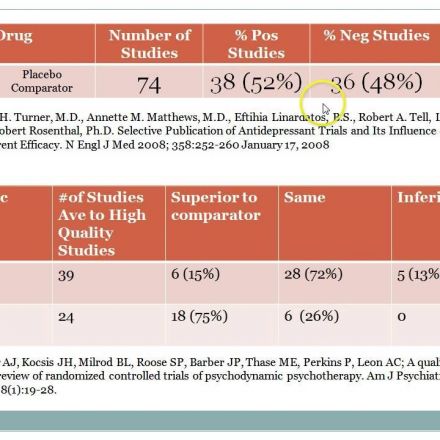

10 years ago
4
Meta-Meditation: A Skeptic Meditates on Meditation
The media are touting meditation’s potential for treating everything from anxiety to AIDS, but strong, objective evidence is lacking. According to one estimate, as many as 10 percent of Americas have tried meditation. Meditation “has gone viral,” The Los Angeles Times reports. Harvard Business Review notes that “mindfulness is close to taking on cult status in the business world.”
Continue Reading
Additional Contributions:



























Join the Discussion
This fellow does seem to have a bone to pick with meditation, primarily because it doesn't work for him. While I agree that it requires continued study I don't believe all the research is bogus. It seems that plasticity plays a part so if you don't keep up with it you can lose what you gain, much like exercise.
We should be skeptical, yes. Closed-minded, no.
I don't see how a blogger writing two articles about the same subject two years apart means he has "a bone to pick" with the subject, and I don't know why you're assuming that he's writing on the subject because meditation "doesn't work for him". That seems a tad presumptuous. I think it's a plus that the author has actually tried meditation himself, instead of just reading about it. It makes sense that you would try something out if you're going to write about it.
From the first article you linked to:
I feel like this is one of the things John Horgan is taking issue with. It's not scientific to have already decided about something before you've done any research. You're supposed to let the research tell you whats going on, not "carry with (you)" some impression you got as a teen.
I don't necessarily think that all the research is bogus or that there is nothing to meditation, but I did think Horgan had some good points. It's also worth noting that even when something does have a benefit, it can still be oversold or misused. Hogan seems to be uneasy about some of the applications of meditation, and some of the culture surrounding it, which I think is understandable.
Using the he words mindfulness and meditation interchangeably is wrong. Not all mindfulness involves meditation. And yet there is plenty of objective scientific evidence evidence that mindfulness has benefits, outcomes and works. MRI scans don't lie. We are not dumb masses incapable of critical analysis. Just because something becomes popular does not mean it's without merit. The Harvard business school comments come on the back of a large research project the Harvard business students volunteered for. And yes it proved outcomes.
I didn't notice any interchangable use of the words mindfulness and meditation, but the author does use the term "mindfulness meditation" rather than just mindfulness. The article was admittedly snarky, but not offensively so, IMHO. I don't think it was implied that anyone is dumb or incapable of critical analysis, or that something being popular means it's without merit. Popular things do deserve a bit more scrutiny simply because they affect more people. As for brain scans proving outcomes, the author remains unconvinced for reasons he states in the article thusly:
The author isn't even against meditation, and plans to try it again. He seems to be wary of overstating benifit without proper evidence, and is unconvinced so far. Meditation is a difficult thing to assess for many reasons. It's totally fine if you find meditation helpful, and I don't think the author meant any offence.
(edit: typos)